Welcome to our new podcast,Best Knockoff Luxury Clothing With Hillary Kerr. Think of it as your direct line to the designers, stylists, beauty experts, editors, and tastemakers who are shaping the fashion-and-beauty world. Subscribe toBest Knockoff Luxury Clothing With Hillary Kerr on Apple Podcasts and Spotify.
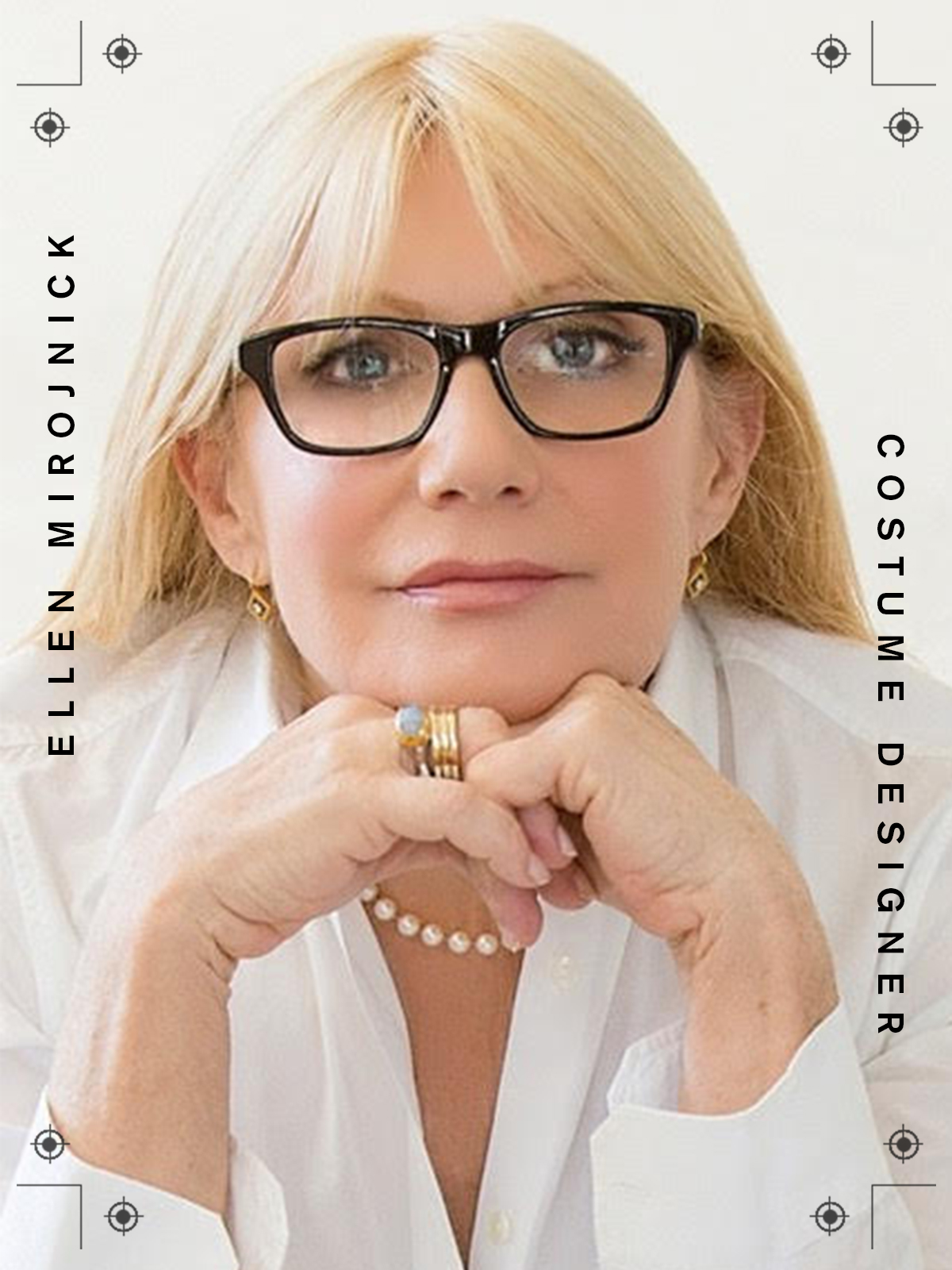
Once they finish gushing over the absolutely electric chemistry between Daphne and Simon, Bridgerton fans are always quick to point out the secondary star of the show—the elaborate candy-colored costuming. With famed costume designer Ellen Mirojnick on board, the show quickly built an international fan base who are just as in love with the au courant take on Regency-era fashion as they are with the characters of the Ton. Mirojnick has provided us with an array of iconic characters from her work on a diverse range of films and TV shows, such as Basic Instinct, Showgirls, Wall Street, The Greatest Showman, and Amazon Prime's Cinderella.
Listen in as the Emmy-nominated designer takes us through the process of outfitting stars like Billy Porter, Regé-Jean Page, and Camila Cabello for her latest projects in this week's episode of Who What Wear With Hillary Kerr.
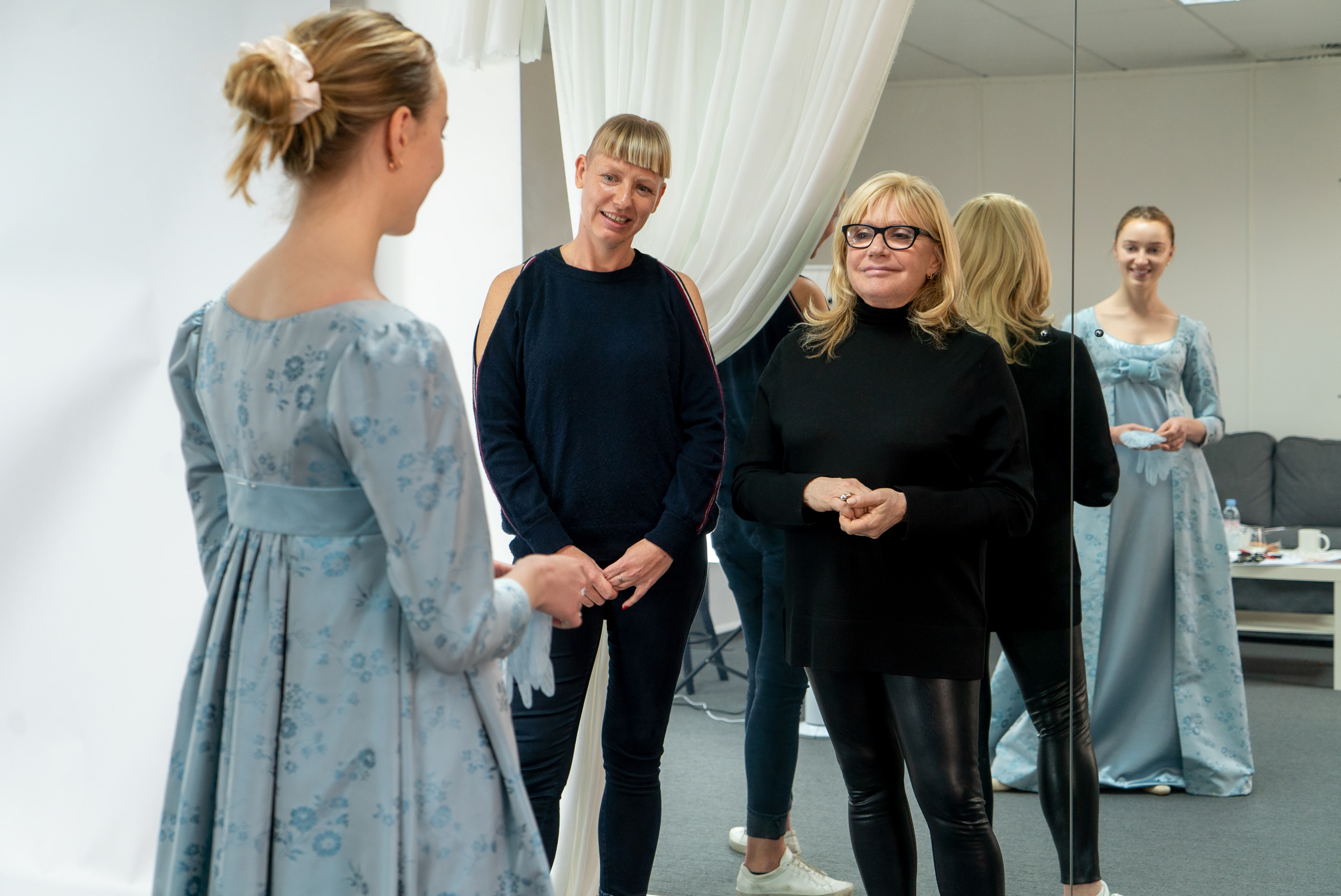
Talk a little bit about the way that you thought about color as you were creating costumes [for Bridgerton]. I'm so curious about that process.
In knowing what we were going to do and what we were creating in our [lookbook], the first thing that I saw that was the key to the entire show were paintings by Genieve Figgis, who [was] an Irish fine artist, painter extraordinaire. She created these scenarios that were all seemingly historic. The palette was luscious. I looked at the paintings. She has a series of the most perfect paintings that actually were our show. I mean, that's how I looked at it. How she created her scenarios was the first clue into how we were going to go about our work. What was so intoxicating to me was that the lines [in Figgis's art] were blurred. What that means in terms of costumes is that there was some element of illusion. We shifted the palette to a very vibrant and magical, more accessible palette. If you watched Emma with Anya Taylor-Joy, Alexandra Byrne did the same. She elevated the color palette. But what I didn't know when I saw Genieve's work was that Alexandra investigated further than I did because of what her research needed to be, as that color, the vibrancy did exist in Regency time—which nobody knows because Jane Austen is always portrayed in beige more or less. But I didn't know that about Alexandra Byrne until much later. So we shifted the palette. We felt it was far more modern.
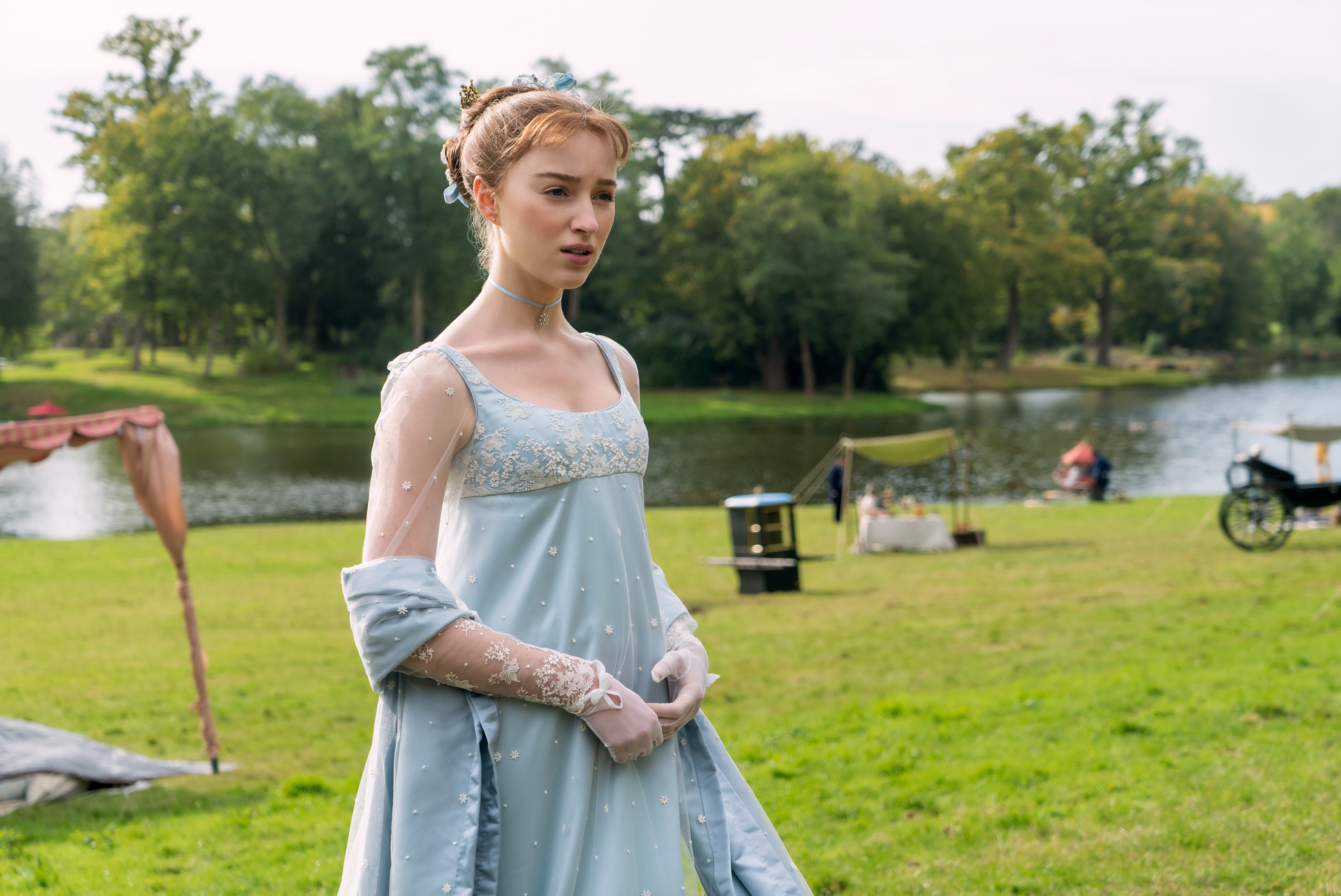
The men, in particular, were so flawless and in a way that I've never seen this period done before. I mean, it's impeccable. I'm curious about how you executed that because it was sexy and modern but still felt of the time. It was so wildly well done. I feel like, in a weird way, that's harder to do.
The pieces are very, very strict. You have a waistcoat, you have different jackets, you have different coatings, you have trousers, and you have shirts. I love men's clothes. My career goes back to a point where I had quite a large career because of men's design. We decided to look at different possibilities, look at different colorations, look at things that would pop, look at things that were maybe off the beaten path in terms of patterning and accessories. That's all we did, frankly. It was the length of the leg. Who would wear light pants, or who would wear white pants? Not everybody can do that. Who would wear dark pants? When it came to [Regé-Jean Page], though (Simon), he was another story. You break down the characters. You have that generality that I just spoke to, and then you have defining the characters and, in defining the characters, who wears what color velvet, who wears what kind of waistcoat, who wears what kind of court coat or frock coat. Does anybody wear a long coat? Do they wear tall boots? Do they not wear boots? It's all of those little pieces that are put together in the fitting room. I don't mean to pat myself on the back, but the one thing that I can always count on myself for and the people that I have around me… I do have good taste, and I know when a man looks really handsome. Fortunately, the team that I had around me, there was a common language throughout all of us. They knew that I was really throwing away the book and being wild yet staying within a slight boundary. When Regé walked into the room, he was so tall and really elegant, and his neck was really long. We knew immediately that his collar had to be taller than the average collar. It would just look silly if it didn't couch his neck and his jaw correctly. [Simon] came from another place. He traveled. He was not part of the Ton and that social circle that was so specific. Regé was not a challenge, but he was quite a great character to invent because there was great dialogue between us in creating Simon. Where did Simon come from when we meet him, and how will he take to the marriage market? He actually wears more elegant combinations that are a bit more distinctive.
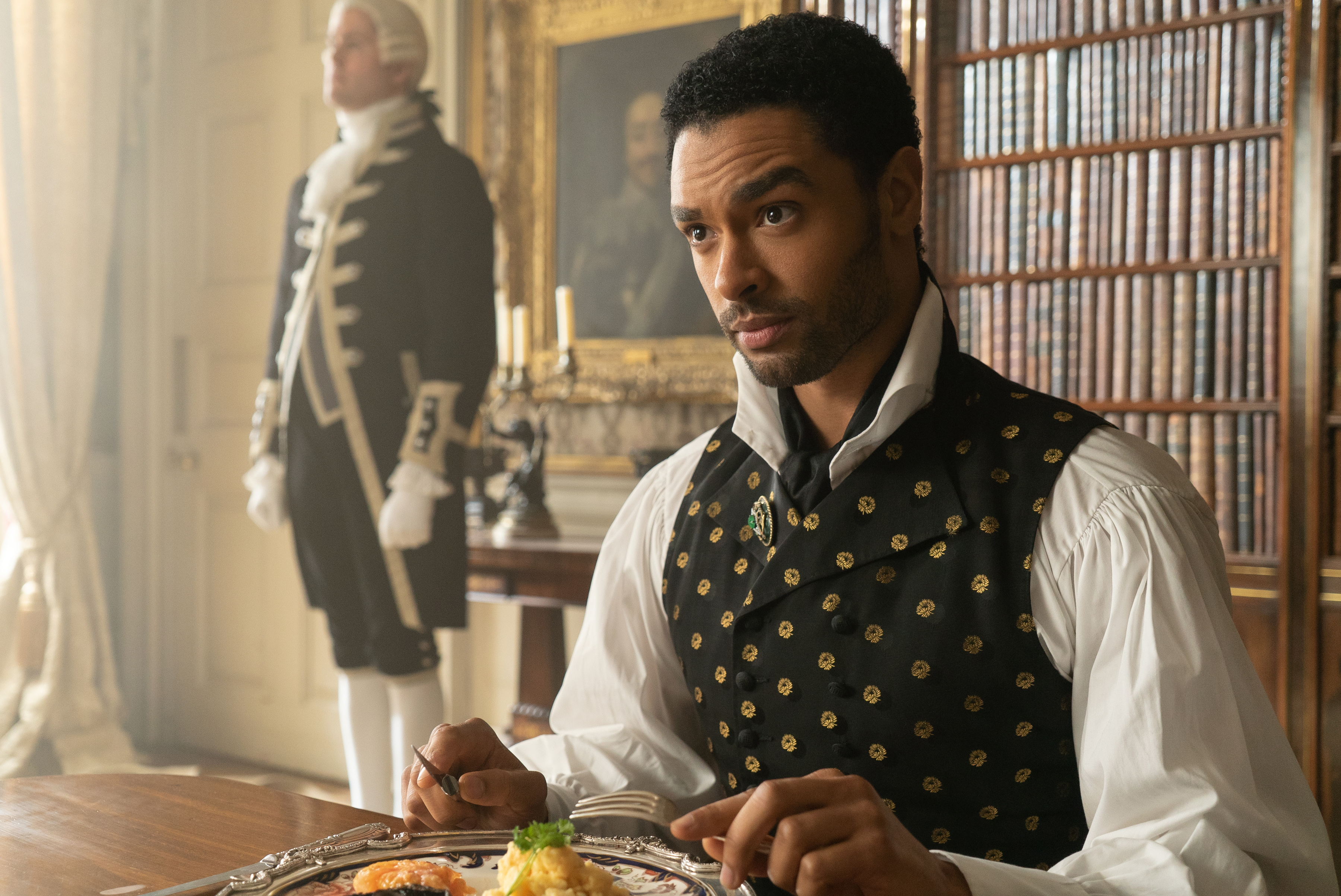
I can't let you go without talking about the new Cinderella. So you have quite a history with Cinderella. You also did the costumes back in 1997 for Cinderella with Brandy. It was a very formative movie for a lot of us. I'm curious about how you approached costumes this time around and what it's like working on a project that you have such an intimate relationship and previous experience with in some ways.
I love Cinderella stories because they are magical. I really do believe in magic and setting that magic flame in all of us. It's just my life's mission. That being said, it's two different Cinderellas. The 1997 Cinderella was the Rodgers and Hammerstein Cinderella. It was the first of its kind in its diversity, and it was a huge pleasure. It was a Disney piece, Cinderella must be blue, and the Rodgers and Hammerstein score is… How does it get better? It doesn't—until this Cinderella. This Cinderella, when I was first introduced to it, was called Rebel Dreamer. So you knew that there was something else in store, and it was also a musical, and I love musicals. In this one, we have Camilla Cabello, and she is the first Latina Cinderella, which is fabulous. She is an independent spirit. She is a Cinderella for the 21st century. This is not a contemporary film. It is a fairy tale. The music is all modern, a compilation, and inclusive of new songs that Camila has written and that Idina Menzel has written, and it's all danceable. But it's not a contemporary film. So in creating this fairy tale, I looked at many different time periods and chose different elements that could be timeless to create this world. It's all combined in a way that I think creates the best fairy tale. The difference with this is that that glass slipper is going to break the glass ceiling. Our Cinderella is independent, feisty, courageous, determined, and wants to make the best dresses that the world has seen.
It really was very challenging once I actually geared in and focused on Cinderella not in our everyday world and not in her workaday world but in the world that she wished to create. She dreamt of being this woman who was the most sought-after designer in the world. Her interest was not marrying the prince. Her interest was in becoming what she dreamt of becoming, of making magic with what her imagination could birth. I was like Cinderella having to design those dresses that she designed for the world to see her gifts. And when it came to the Cinderella dress, the pressure to design that dress was probably greater than any single pressure that I could have had throughout that film. It's different than the original Cinderella story. Our dress needed to serve many different moments. She had to sneak into some places. She had to be able to move around in it, get up, crumple it, and so on. There was a moment where the big skirt had to come off so they can dance. There were all these beats that had to go into the thinking of the practicality of the dress and that had to come from flowers and nature.
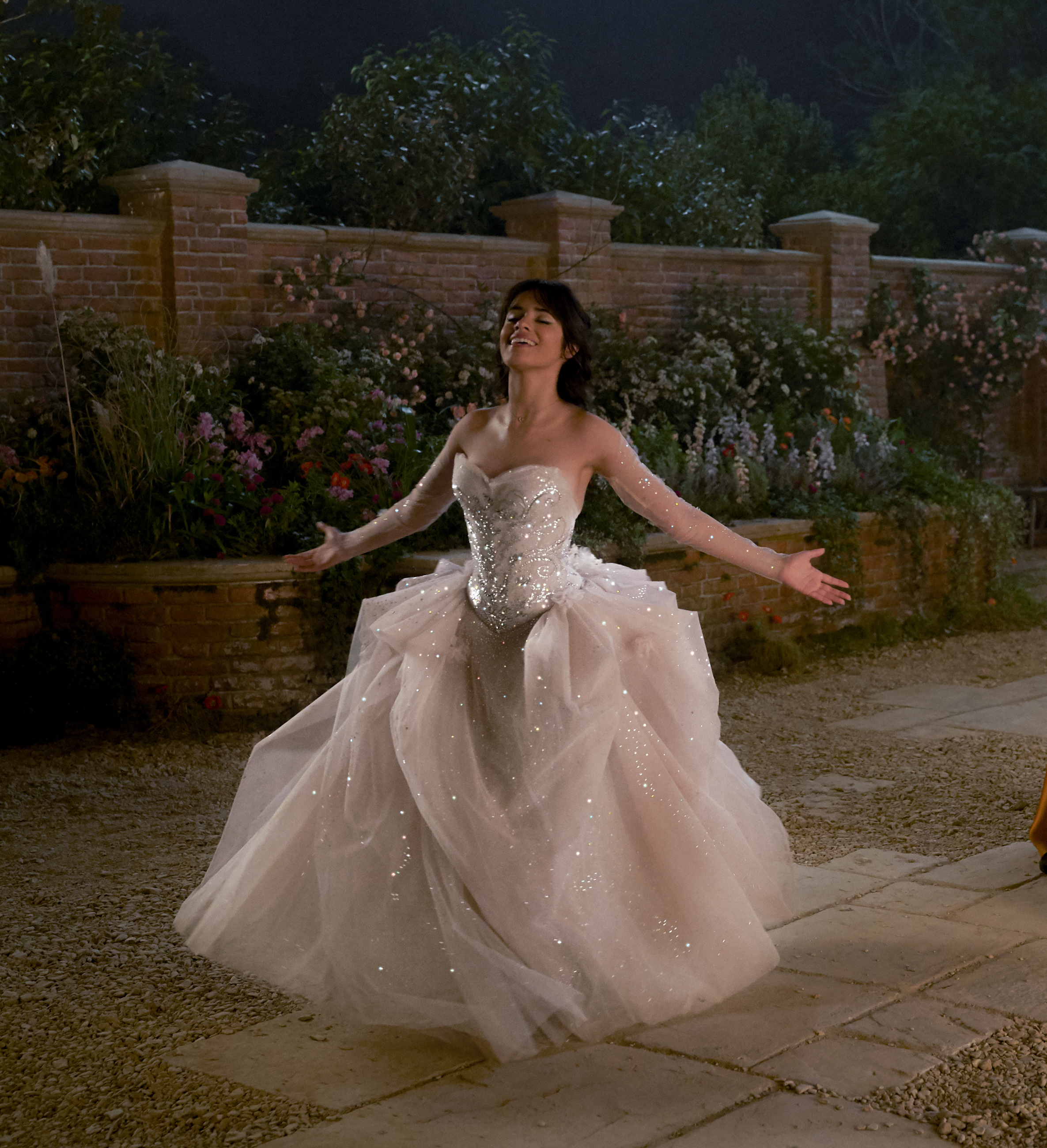
I'm also so very excited to see Billy Porter as a fairy godmother. Obviously, your Cinderella dress moment is a big one. Are there any others?
The Fab G is a very big moment. The Fab G is birthed from a monarch butterfly. Subsequently, the color is sublime; Billy is sublime. The intention was to have a feminine-masculine approach to it. It was very important to the character and to Billy as the Fab G. The Fab G just sparkles, lights up the world. It's quite a gorgeous costume, and Billy just inhabits it with such grace and fierceness as well.
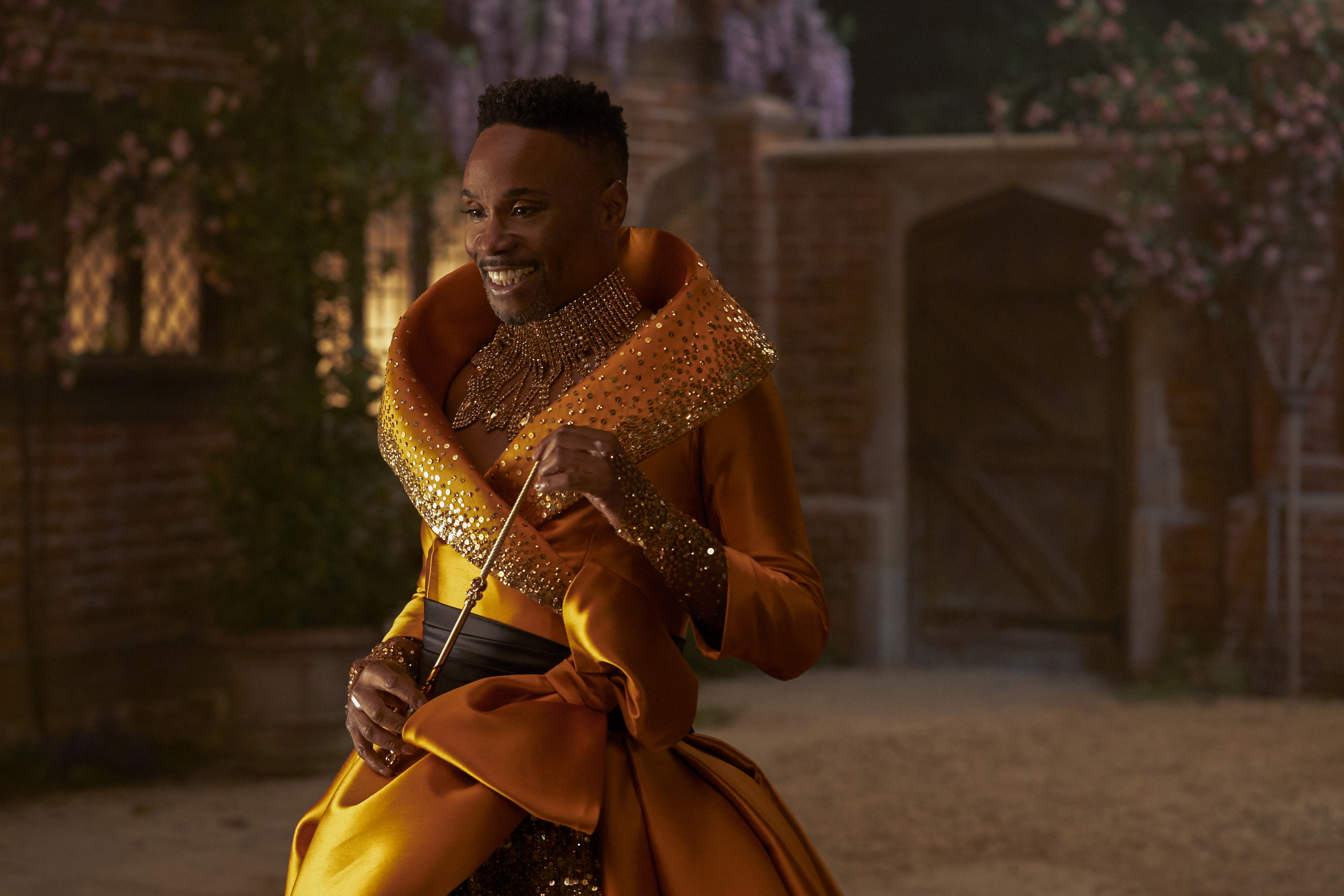
This interview has been edited and condensed for clarity. Next up, check out our previous episode featuring stylist extraordinaire Jason Rembert.
Ray Lowe is a contributing editor forBest Knockoff Luxury Clothing . She's spent the last decade living in New York, but now that she professionally works from home, she's slowly been going back to her roots by splitting time between NYC and L.A. A year ago, she left a four-year stint as a fashion editor for Refinery29 to explore the freelance life. Nowadays, she does just about everything from penning online articles (forBest Knockoff Luxury Clothing , Refinery29, Elle, Cosmo, and many more) to writing scripts, styling, and finding ways to fuse her love for both Disney and fashion. Her main beat is fashion (trends, emerging brands, affordable finds, you name it), but you may find her dropping in with a beauty story every now and then. As for her personal style, she'd best describe it as a balanced blend of basics and contemporary trends, often with a dash of Mickey Mouse thrown in for good measure. In her spare time, she can be found coddling my pets (a French bulldog and a rescue cat), curating travel itineraries for her friends, scrolling through Instagram for up-and-coming brands, and watching so-bad-they're-good films.